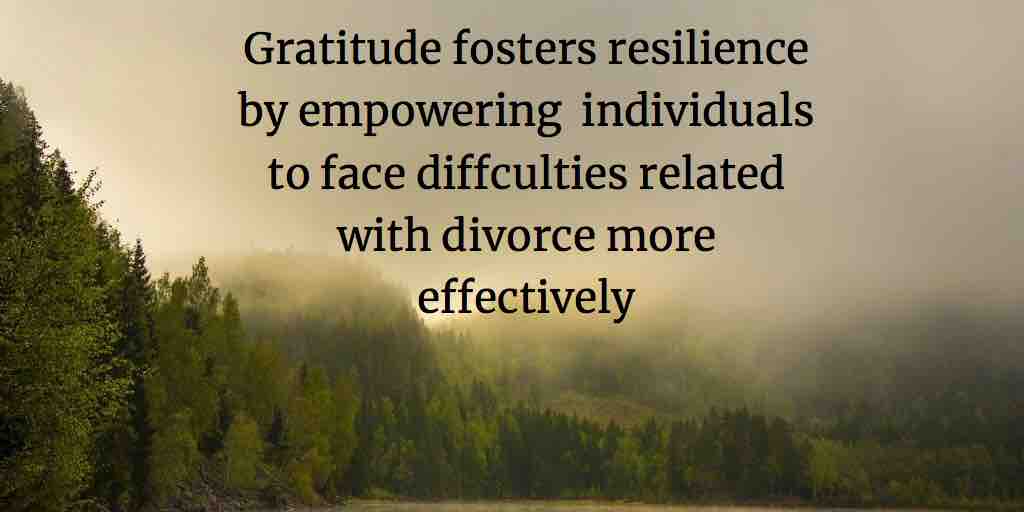🌿✨ Meditation for Divorce & Separation Program: Embarking on a New Journey✨🌿
04 Mar, 2020

Life is a journey with its twists and turns, and sometimes we find ourselves at crossroads we never expected. 🛤️ In the spirit of resilience and self-discovery, we invite you to join our upcoming Meditation for Divorce & Separation Program. 🧘♀️🧘♂️
🌟 Program Highlights:
Guided Meditations: Find solace and strength through guided meditation sessions tailored for those navigating the complexities of divorce and separation.
Mindful Healing: Embrace mindfulness practices that foster emotional healing and help you build a positive outlook on the future.
Community Support: Connect with others on similar journeys, creating a supportive network that understands the challenges and triumphs of this transformative experience.
Expert Insights: Benefit from the wisdom of experienced facilitators and experts who will provide tools and techniques to navigate this chapter with grace.
Role of Mindfulness Practice!!
Mindfulness practice can significantly enhance our ability to connect with our partners by fostering a deeper sense of presence, empathy, and understanding. Here are several ways in which mindfulness can strengthen the connection with your partner:
Present Moment Awareness:
Mindfulness encourages being fully present in the moment without judgment. When you are fully engaged in the present, you are more attuned to your partner's words, feelings, and needs.
Improved Communication:
Mindfulness helps cultivate active listening, allowing you to hear your partner more deeply. By being fully present in conversations, you can respond more thoughtfully and avoid reactive communication.
Emotional Regulation:
Mindfulness practices, such as meditation and deep breathing, contribute to emotional regulation. This means you're better equipped to manage your emotions during conflicts, preventing unnecessary escalation and fostering a more supportive environment.
Increased Empathy:
Mindfulness involves developing empathy, the ability to understand and share the feelings of another. This heightened empathy allows you to connect with your partner on a deeper emotional level.
Reduced Reactivity:
Mindfulness teaches us to observe our thoughts and reactions without immediate judgment. This reduces impulsive reactions during disagreements and allows for more thoughtful responses.
Enhanced Intimacy:
Being fully present in intimate moments can deepen the emotional and physical connection with your partner. Mindfulness can help cultivate a greater appreciation for the richness of these shared experiences.
Stress Reduction:
Mindfulness practices are known to reduce stress. When individuals are less stressed, they are more likely to approach their relationships with patience and understanding, rather than reacting from a place of tension.
Mindful Appreciation:
Mindfulness encourages gratitude and appreciation for the positive aspects of your relationship. This focus on what is going well can strengthen the bond between partners.
Shared Mindfulness Practices:
Engaging in mindfulness practices together, such as meditation or mindful walks, can create shared experiences that deepen your connection.
Mindful Conflict Resolution:
Mindfulness provides tools for managing conflicts constructively. It allows for stepping back, reflecting, and approaching disagreements with a calmer and more open mindset.
To incorporate mindfulness into your relationship, consider practicing together, attending mindfulness workshops, or simply being intentional about being fully present during your interactions. It's a journey that can transform not only your relationship but also your individual well-being.
Gratitude is a powerful tool to reconnect with Partner
Gratitude can be a powerful tool in coping with divorce and separation, helping individuals navigate the challenges and cultivate a positive mindset amidst the changes. Here's how gratitude can be beneficial:
Shift in Perspective:
Gratitude encourages a shift in perspective. Instead of focusing solely on what has been lost, it prompts individuals to acknowledge and appreciate the positive aspects of their lives, fostering a more balanced view.
Coping with Loss:
Divorce often involves significant loss, but expressing gratitude for what remains can help in the grieving process. It allows individuals to acknowledge the aspects of their lives that are still meaningful and valuable.
Emotional Well-being:
Regularly practicing gratitude is linked to improved emotional well-being. It can help reduce feelings of sadness, anger, and anxiety, providing a buffer during challenging times.
Building Resilience:
Gratitude fosters resilience by helping individuals develop coping strategies. It encourages a focus on strengths and resources, empowering individuals to face the difficulties associated with divorce more effectively.
Enhancing Self-Reflection:
Gratitude involves reflecting on one's life and recognizing the positive elements. This process of self-reflection can be instrumental in understanding personal values, strengths, and areas for growth.
Improved Relationships:
Expressing gratitude towards others, even in the midst of divorce, can contribute to better interpersonal relationships. This might include acknowledging the support of friends, family, or professionals who are helping during the process.
Encouraging Self-Compassion:
Divorce can be emotionally taxing, and individuals may experience self-blame or criticism. Gratitude promotes self-compassion by recognizing personal strengths and positive qualities, contributing to a healthier self-perception.
Creating a Positive Environment:
Cultivating a gratitude practice helps create a positive emotional environment, both internally and in interactions with others. This positivity can contribute to a more amicable divorce process and post-divorce relationships.
Setting a Positive Example:
For those with children, expressing gratitude can set a positive example for coping with challenges. It shows that even in difficult times, there are aspects of life to be thankful for and that a positive outlook is possible.
Focus on Future Possibilities:
Gratitude can act as a bridge to the future. By appreciating the present and acknowledging positive aspects, individuals may become more open to new opportunities and possibilities that lie ahead.
Practicing gratitude doesn't negate the pain associated with divorce, but it can provide a valuable tool for navigating the emotional terrain, finding strength, and fostering a more positive outlook on the journey ahead.
Let's come together to cultivate inner peace, resilience, and a renewed sense of self. Life after divorce is a new canvas, and with mindfulness, we can paint it with colors of self-love and empowerment. 🎨💖
Feel free to share this post with those who might benefit from this transformative program.
You can book a session at info@santeaching.com




